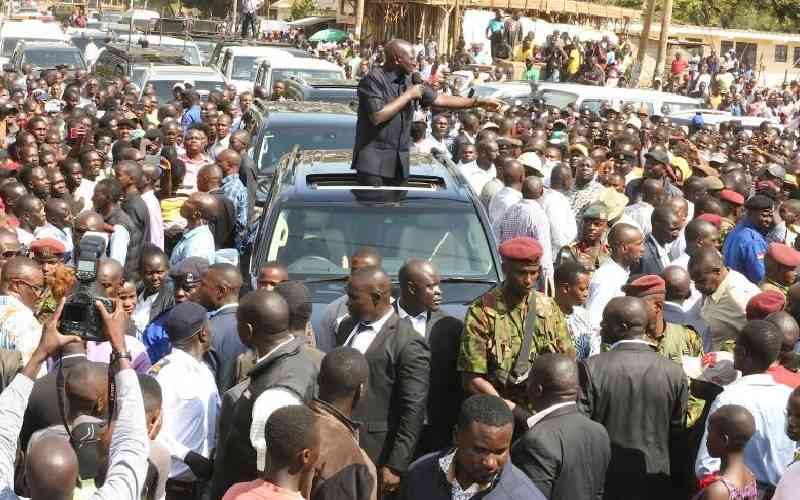
President William Ruto today kicked off a five-day development tour of the western region, a perceived Raila Odinga stronghold, with a clarion call to the locals to desist from anti-government protests championed by the opposition.
Ruto, who toured Budalang'i and Teso North constituencies in Busia and Lurambi constituency in Kakamega, regretted that the region had partaken wholesomely in the recent demos called by Azimio leader Raila Odinga over the rising cost of living, saying they were curtailing the country's development.